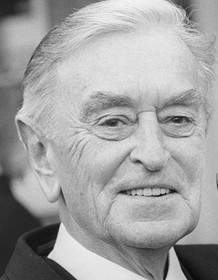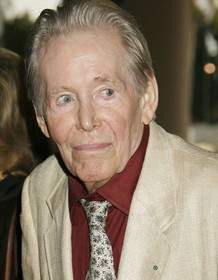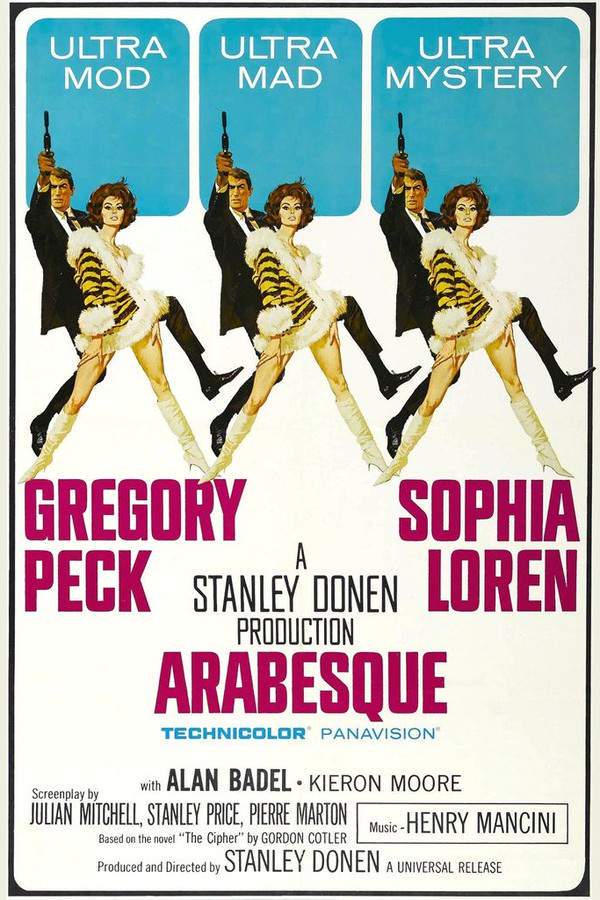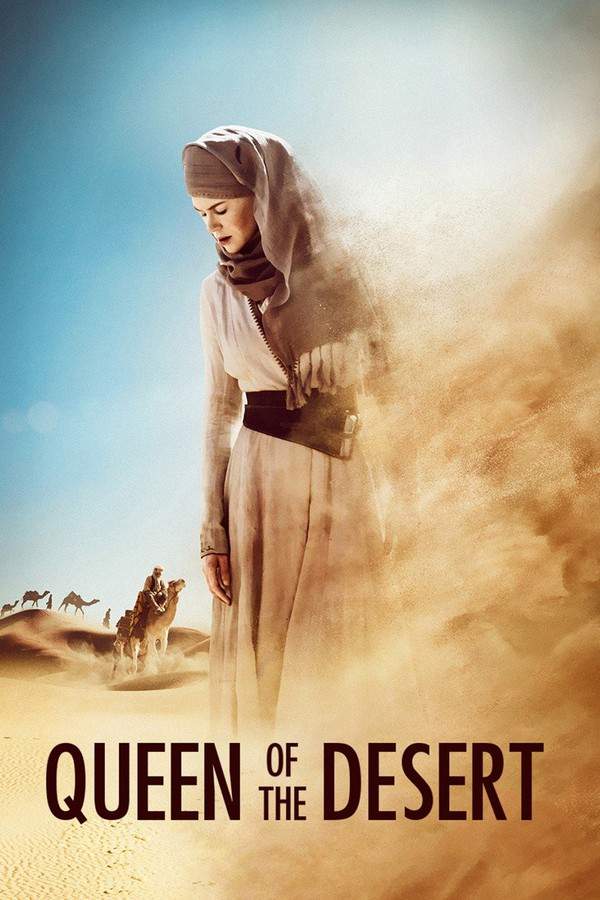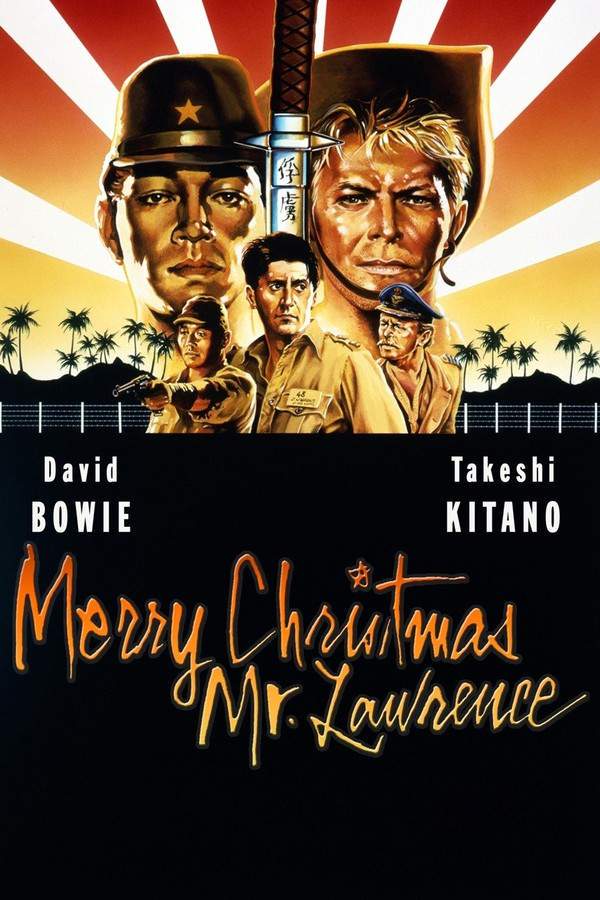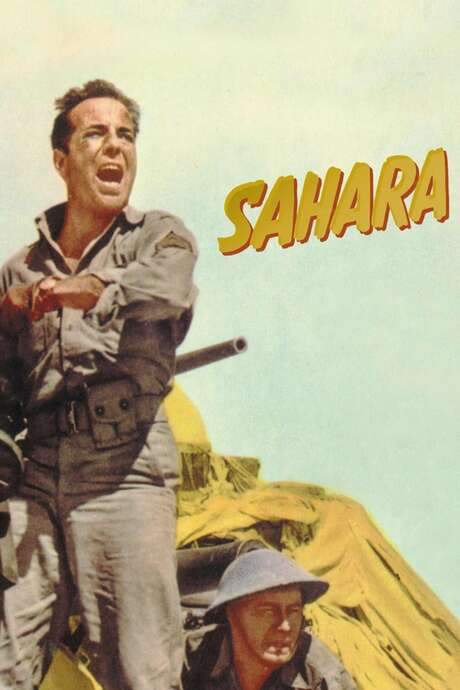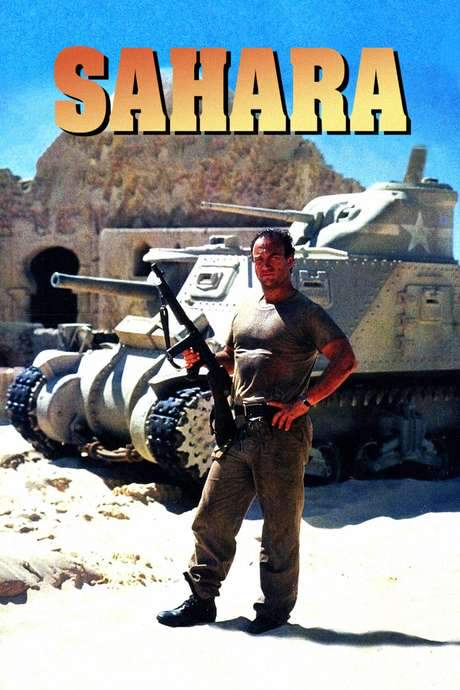Lawrence of Arabia (re-release) 2002
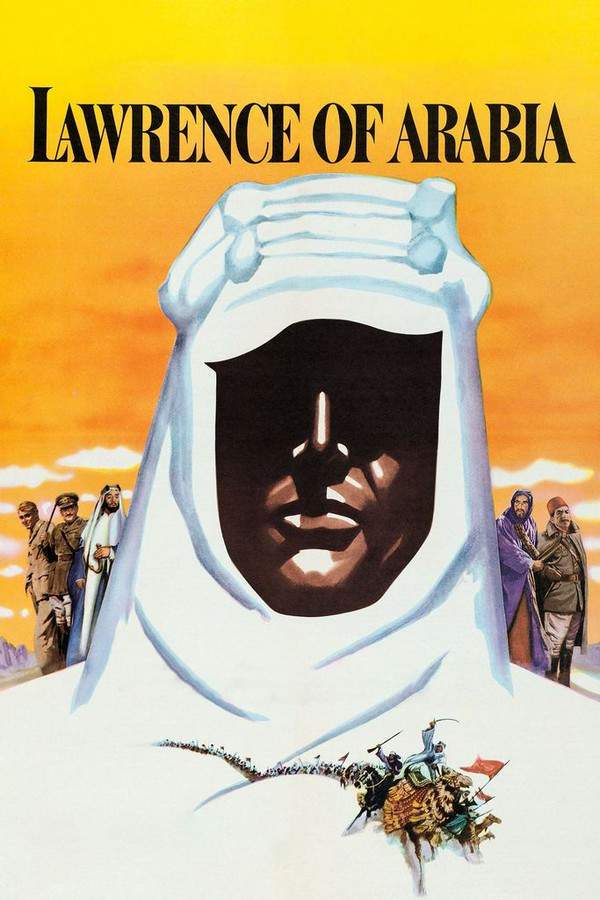
During World War I, British Lieutenant T.E. Lawrence is dispatched to the Arabian desert to unite warring Arab tribes against the Ottoman Empire. He develops a complex relationship with Sherif Ali, a local leader, as they navigate political intrigue and dangerous military campaigns. Lawrence leads a daring camel trek across vast distances to attack Turkish forces and liberate key strongholds, facing both physical hardship and internal conflict along the way.
Does Lawrence of Arabia (re-release) have end credit scenes?
No!
Lawrence of Arabia (re-release) does not have end credit scenes. You can leave when the credits roll.
Meet the Full Cast and Actors of Lawrence of Arabia (re-release)
Explore the complete cast of Lawrence of Arabia (re-release), including both lead and supporting actors. Learn who plays each character, discover their past roles and achievements, and find out what makes this ensemble cast stand out in the world of film and television.
External Links and Streaming Options
Discover where to watch Lawrence of Arabia (re-release) online, including streaming platforms, rental options, and official sources. Compare reviews, ratings, and in-depth movie information across sites like IMDb, TMDb, Rotten Tomatoes or Metacritic.
Ratings and Reviews for Lawrence of Arabia (re-release)
See how Lawrence of Arabia (re-release) is rated across major platforms like IMDb, Metacritic, and TMDb. Compare audience scores and critic reviews to understand where Lawrence of Arabia (re-release) stands among top-rated movies in its genre.

Metascore
tbd
User Score


93%
TOMATOMETER

93%
User Score

8.3 /10
IMDb Rating

70
%
User Score
Take the Ultimate Lawrence of Arabia (re-release) Movie Quiz
Challenge your knowledge of Lawrence of Arabia (re-release) with this fun and interactive movie quiz. Test yourself on key plot points, iconic characters, hidden details, and memorable moments to see how well you really know the film.
Lawrence of Arabia Quiz: Test your knowledge about the epic story of T.E. Lawrence and his journey during World War I.
What year does the movie primarily flash back to during World War I?
1914
1916
1918
1935
Show hint
Full Plot Summary and Ending Explained for Lawrence of Arabia (re-release)
Read the complete plot summary of Lawrence of Arabia (re-release), including all major events, twists, and the full ending explained in detail. Explore key characters, themes, hidden meanings, and everything you need to understand the story from beginning to end.
The film unfolds in two distinct parts, separated by an intermission.
Part I
In 1935, the life of T. E. Lawrence, played by Peter O’Toole, is tragically cut short in a motorcycle accident. At his memorial service at St. Paul’s Cathedral, reporters seek to unravel the complexities of this remarkable man, but they find themselves at a loss. During World War I, Lawrence stands out as an unconventional British Army lieutenant stationed in Cairo, known primarily for his insolence and his deep understanding of the Bedouin culture. Despite the objections from General Murray (played by Donald Wolfit), Mr. Dryden (portrayed by Claude Rains) from the Arab Bureau sends Lawrence to evaluate the potential of Prince Faisal (played by Alec Guinness) in his rebellion against the Turks.
While making his journey, Lawrence witnesses the harsh realities of Bedouin life when his guide is killed by Sherif Ali (represented by Omar Sharif) over a dispute regarding a well. Upon arrival, Lawrence meets Colonel Brighton (played by Anthony Quayle), who enforces a cautious approach. However, Lawrence shows defiance by engaging Faisal directly, sparking the prince’s curiosity with his bold knowledge. Brighton, suggesting a retreat after a major setback, is challenged by Lawrence, who proposes an audacious surprise attack on Aqaba. If successful, this would establish a crucial supply port for the British. Despite the town being heavily fortified at sea, it is vulnerable on the landward side, and with Lawrence’s persuasion, Faisal agrees to contribute fifty men, led by a doubtful Sherif Ali. Two orphans, Daud (John Dimech) and Farraj (Michel Ray), join him as aides.
The group embarks on a daunting expedition across the Nefud Desert, known for being virtually insurmountable. As they journey relentlessly day and night in search of water, they unwittingly leave behind Gasim (I. S. Johar), who succumbs to exhaustion. Determined, Lawrence risks his own safety by backtracking to save Gasim, winning over Sherif Ali in the process. Eventually, he enlists Auda Abu Tayi (Anthony Quinn), a powerful tribal leader, to join their cause against the Turks. Conflict arises when one of Ali’s followers kills a member of Auda’s tribe, threatening their fragile alliance. To maintain unity, Lawrence takes the extreme step of executing the murderer himself, only to find that it is Gasim. This sacrifice solidifies their alliance, enabling them to triumph over the Turkish forces.
After relaying the news of victory to Mr. Dryden and the new commander, General Allenby (Jack Hawkins), Lawrence faces another tragedy during their crossing of the Sinai Desert when Daud tragically dies in quicksand. Promoted to major, he receives resources to aid the Arabs but struggles internally with his act of execution—confessing enjoyment to Allenby, who dismisses Lawrence’s concerns about British intentions in Arabia.
Part II
Lawrence embarks on a relentless guerrilla campaign, targeting Turkish supply lines by derailing trains and disrupting operations. His actions catch the attention of American war correspondent Jackson Bentley (Arthur Kennedy), who helps elevate Lawrence’s fame. However, in a disastrous raid, Farraj suffers grave injuries, and feeling compelled to save him from torture, Lawrence makes the heart-wrenching decision to end Farraj’s life.
When scouting the city of Daraa with Ali, Lawrence is captured by the Turkish Bey (José Ferrer), who subjects him to humiliating and brutal interrogation. Following this traumatic experience, Lawrence finds himself in Jerusalem, where Allenby pressures him to spearhead an advance on Damascus. By now, Lawrence is a changed man, tormented by his past actions, yet he ultimately agrees to lead the effort.
He assembles an army comprised mainly of ruthless fighters, driven more by greed than by a sense of duty to the Arab cause. Amid their assaults, they confront a column of Turkish soldiers guilty of atrocities against the people of Tafas. Amid the chaos, one of Lawrence’s men demands, > “No prisoners!” When Lawrence hesitates, the man charges alone into danger and is killed. This spurs Lawrence to echo the command, leading to a bloody massacre in which he actively participates.
Upon taking Damascus ahead of Allenby’s forces, the newly-introduced Arab council struggles to govern effectively, succumbing to infighting and operational failures, ultimately relinquishing control to the British. Lawrence, now promoted to colonel, finds his role diminished and is promptly ordered home, feeling the weight of his disillusionment as he departs in a staff car, rendered obsolete by both Faisal and the British authorities.
Uncover the Details: Timeline, Characters, Themes, and Beyond!

Coming soon on iOS and Android
The Plot Explained Mobile App
From blockbusters to hidden gems — dive into movie stories anytime, anywhere. Save your favorites, discover plots faster, and never miss a twist again.
Sign up to be the first to know when we launch. Your email stays private — always.
Discover Film Music Concerts Near You – Live Orchestras Performing Iconic Movie Soundtracks
Immerse yourself in the magic of cinema with live orchestral performances of your favorite film scores. From sweeping Hollywood blockbusters and animated classics to epic fantasy soundtracks, our curated listings connect you to upcoming film music events worldwide.
Explore concert film screenings paired with full orchestra concerts, read detailed event information, and secure your tickets for unforgettable evenings celebrating legendary composers like John Williams, Hans Zimmer, and more.


Lawrence of Arabia (re-release) Themes and Keywords
Discover the central themes, ideas, and keywords that define the movie’s story, tone, and message. Analyze the film’s deeper meanings, genre influences, and recurring concepts.

Unlock the World of Movies with Our Comprehensive Wiki
Dive into our Movie Wiki for in-depth film encyclopedia entries, including cast biographies, production trivia, plot synopses, behind-the-scenes facts, and thematic analyses. Whether you’re researching iconic directors, exploring genre histories, or discovering hidden easter eggs, our expertly curated movie database has everything you need to fuel your cinematic passion.

Articles, Reviews & Explainers About Lawrence of Arabia (re-release)
Stay updated on Lawrence of Arabia (re-release) with in-depth articles, critical reviews, and ending explainers. Explore hidden meanings, major themes, and expert insights into the film’s story and impact.
Similar Movies To Lawrence of Arabia (re-release) You Should Know About
Browse a curated list of movies similar in genre, tone, characters, or story structure. Discover new titles like the one you're watching, perfect for fans of related plots, vibes, or cinematic styles.
Quick Links: Summary, Cast, Ratings, More

What's After the Movie?
Not sure whether to stay after the credits? Find out!
Explore Our Movie Platform
New Movie Releases (2025)
Famous Movie Actors
Top Film Production Studios
Movie Plot Summaries & Endings
Major Movie Awards & Winners
Best Concert Films & Music Documentaries
Movie Collections and Curated Lists
© 2025 What's After the Movie. All rights reserved.



